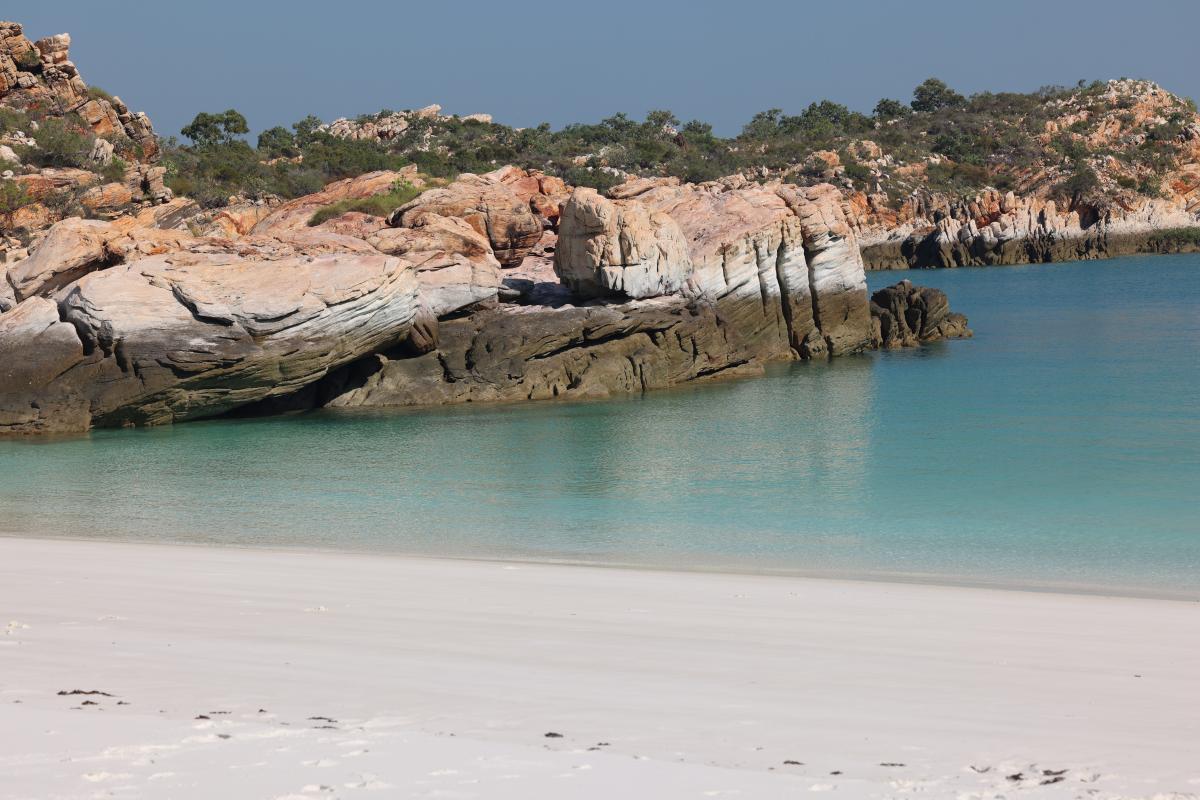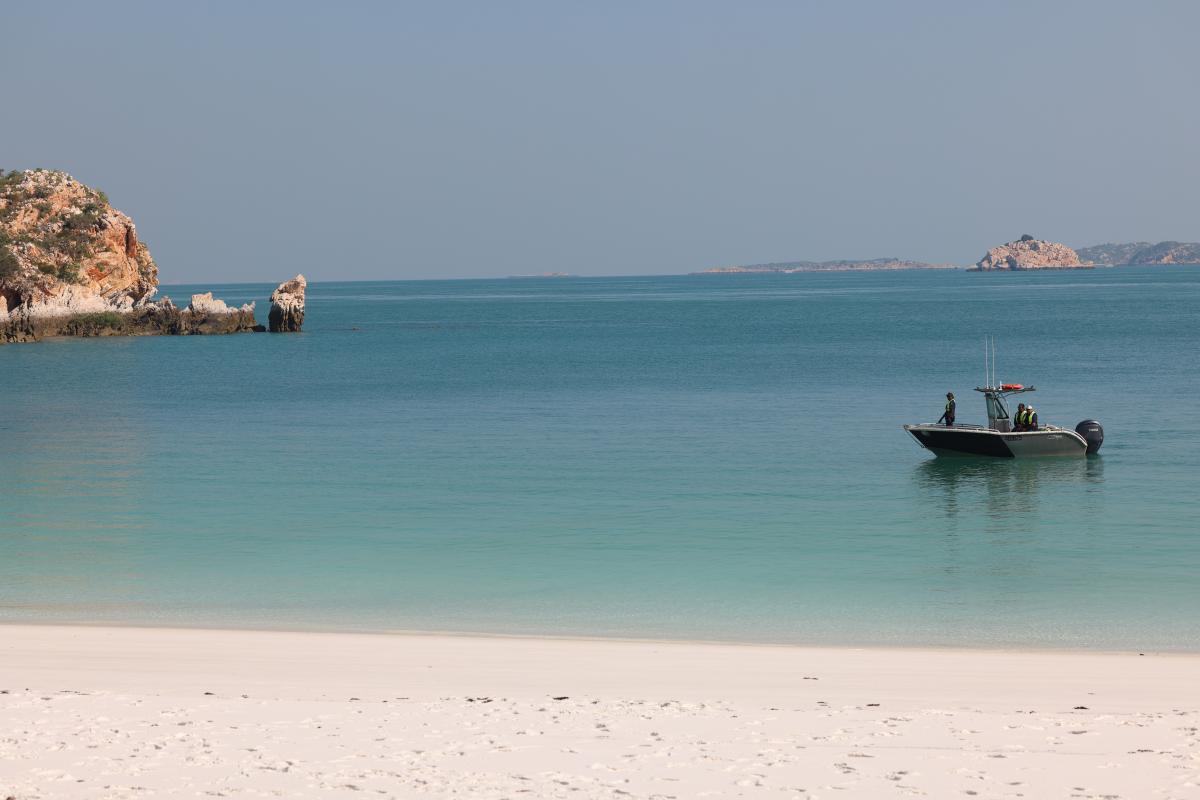About this place
Located on remote Hidden Island, Silica Beach is like no other on the Kimberley coast. It is known for its turquoise waters and sparking white sand and it may be the whitest, squeakiest sand you’ll ever see. The pure white silica sand is made up of silica quartzite.
Mayala Country is rich, alive and healthy. It is culturally significant and provides vital habitat for vulnerable and threatened species. Please help us protect the islands and keep yourself safe:
- Introduce yourself to country.
- Don’t go off alone.
- Thoroughly check your vessel and belongings for cane toads.
- Avoid spreading weeds by checking shoes are clean and by taking all fruits seeds and scraps with you.
- Protect freshwater sources wash dishes with saltwater, don’t use any soaps in or near freshwater and bury any human waste at least 100m from freshwater.
- Don’t take anything home, except your rubbish.
- Don’t build any structure or permanent camps.
- Unless received prior permission please do not capture film or photography for commercial purposes.
Safety information
Plan when to visit. Consider travelling with a personal location beacon (PLB). In the event you need to be rescued it could save your life!
Mayala Traditional Owners are concerned for the safety and wellbeing of visitors to their Country. The remote nature of the marine park, combined with the large intertidal areas, strong tides and currents, occurrence of Linygurra (estuarine crocodiles), extreme weather conditions including tropical cyclones, pose risks to visitors. This is particularly dangerous for visitors who may be inexperienced in, or unprepared for, such conditions.
It is recommended visitors do not swim, snorkel or dive in the marine park, due to the presence of crocodiles, sharks, stingers and strong tidal currents.
It is also important that visitors only explore the beach and not the into the rocky outcrops.
Linygurra (estuarine crocodiles) live in the marine park, inhabiting creeks, rivers, tidal areas, along beaches, offshore areas far from the coast, and in both fresh and salt water. There have been several attacks and injuries to people in the Kimberley, even in freshwater pools inland from the coast.
Both the estuarine (saltwater) crocodile and the freshwater crocodile (Johnston’s crocodile) are Specially Protected under the Biodiversity Conservation Act 2016. It is an offence to interfere, lure or feed crocodiles.
If your vessel is approached by a crocodile, take immediate action to move away from the animal and maintain a safe separation distance.
If you observe a crocodile demonstrating dangerous behaviour, or people interfering with crocodiles, please report details to Parks and Wildlife Service Broome on (08) 9195 5500.
Gallery


Welcoming you to Mayala Country
You are welcome to Mayala Country but it is important to Mayala Traditional Owners that visitors ask first. Read more about visiting Mayala Country.
Activities
 Boating
Boating
Plants, wildlife and fungi
Visit the Atlas of Living Australia for a list of species recorded within a 5km radius of Ngalangalangarr (Silica Beach).
Traditional Owners
We recognise and acknowledge Mayala people as the Traditional Owners of Mayala Marine Park.